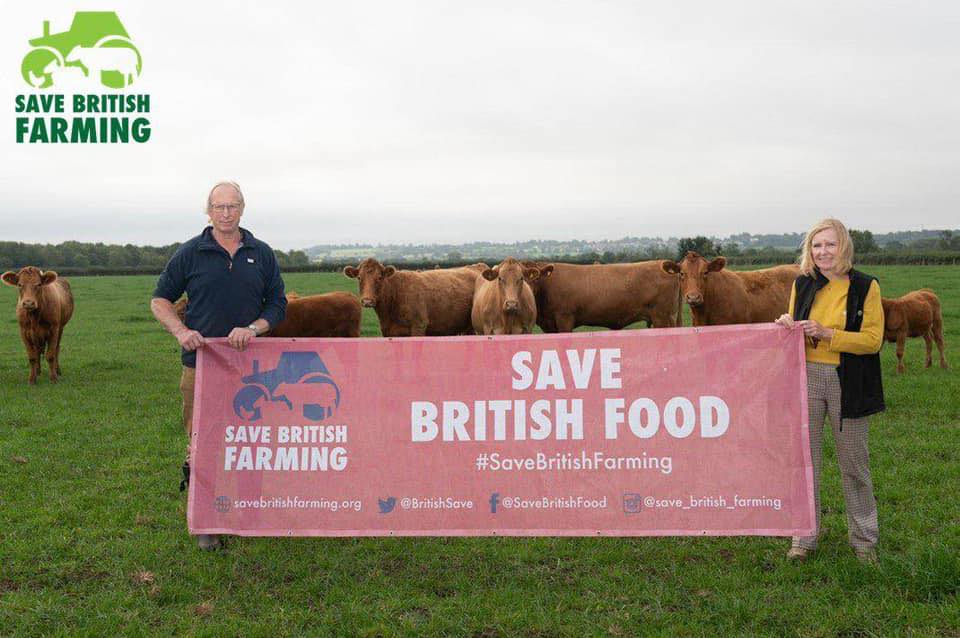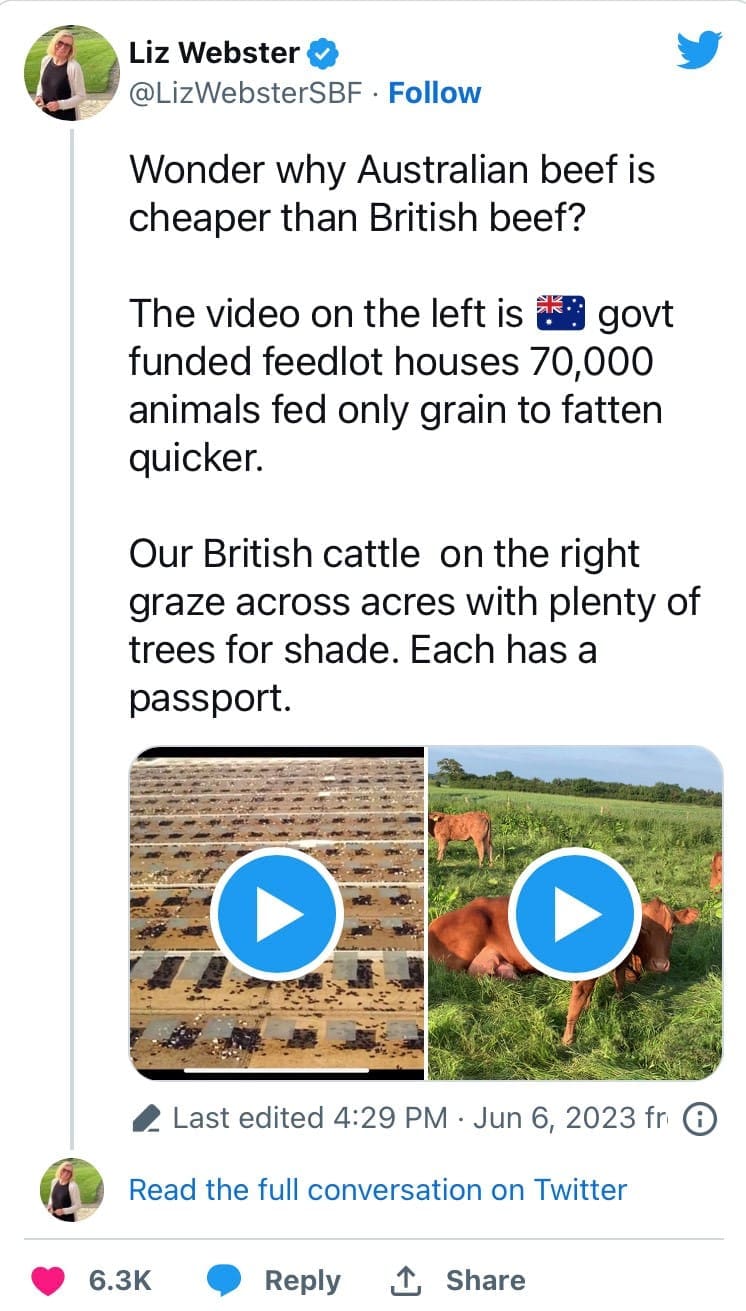
Liz Webster (right) rallying against Free Trade Agreements with Australia and New Zealand. Photo: Save British Farming Facebook
A BRITISH farming group has used an old animal activist video to try to discredit the Australian beef industry’s animal welfare credentials as it voices its opposition to the recently completed Australia-United Kingdom Free Trade Agreement (FTA).
‘Save British Farming’ is an organisation set up to oppose British FTAs with Australia and New Zealand, arguing they will dump “low standard food” on the British public.
This week its chair Liz Webster tweeted a video of Australia’s largest feedlot, Grassdale, stating it was Government-funded and a reflection on why the country’s beef is cheaper than the UK’s.
The tweet prompted a series of replies from Australian producers who pointed out its inaccuracies and argued that the cattle industry in the two countries should be working together rather than dividing.
The video was used by animal activists in 2019 to oppose a State Government grant Mort & Co received towards a $35m expansion at Grassdale – it brought the feedlot from 48,000 to 70,000 SCU (Standard Cattle Units), built a plant converting manure to granulated fertiliser and a gas-fired power plant. The State Government’s contribution was subject to commercial-in-confidence at the time.
Given the feedlot was already 48,000 SCU and the Government only contributed to part of the expansion, it is a stretch to call the place Government-funded – one Twitter user said the Government was more of a hindrance than a help in constructing Grassdale.
Cattle Australia chief executive officer Luke Bowen said the comment that cattle were fed “only grain” was also not accurate.
“Australia only ever has 3-4pc of its cattle in feedlots at one time,” he said.
“I think they are picking on the wrong country in this case, we have some pretty amazing production systems and about 60pc of the country is dedicated to grazing cattle – which is a pretty low stocking density. Feedlots play an important role and have second-to-none animal welfare and biosecurity practices, but most of the animals grow up on grass.
“Using some selective footage generated by animal activists clearly paints a completely wrong picture of what Australian production systems actually are.”
British farming groups long opposed to FTA
British farmers have been sharing concerns for the past two years as negotiations on the FTA were playing out. They lobbied the UK Government to hold Australia to the same animal welfare and environment standards that they were being held to and said the deal was likely dump cheap product on the market.
In reaction the announcement of FTAs with Australia and NZ, UK National Farmers Union president Minette Batters said the government needed to give the local industry more chances to export.
“It’s clear that UK farmers have very little to gain from these two deals; instead, we are pushing the government to focus its trade efforts on opening up markets where there’s a genuine opportunity for UK agriculture to grow our sales of fantastic products overseas,” Ms Batters said.
“While it is reassuring that these deals will not result in a change in our food safety standards here – for example, imports of hormone-reared beef will still be banned – we must ensure that the government’s commitment to uphold the UK’s food safety standards in all deals it negotiates remains unwavering.”
Many challenges for the UK industry
The agricultural industry in the UK has had a large reliance on Government subsidies for many years, which they have been told will dry up because of Brexit.
Television personality Jeremy Clarkson addressed some of the challenges faced by UK farmers in the last series of Clarkson’s Farm, which follows his journey in learning how to run a farm he bought many years ago.
While he voices his opposition to the FTA in the series, he also struggles to gain planning permission to build a restaurant on the farm and make more of a premium for his meat. He often complains about the contradiction between the tough planning laws and being told to diversify.
Australian beef an important part of trade
Last month, Beef Central took a deep dive into what the trade means for Australian beef. One UK importer said the increased non-tariff quota was likely to allow for a wider variety of cuts into the country – which traditionally only took high-value cuts.
Mr Bowen said with Australia producing beef than it can consume and exporting to countries across the world, it was an important part of world trade.
“We buy mugs of the King from England, cars from England and spirits from Scotland and this deal is about world trade,” he said.
“Beef is something we do really well and our systems produce products to the highest standards. We are also showing a lot of responsibility in contributing to fixing some of the climate challenges around the world.
Mr Bowen pointed to this week’s Australian Beef Sustainability Framework results.
“We have been working on environmental sustainability and improving animal welfare for years now,” he said.


HAVE YOUR SAY